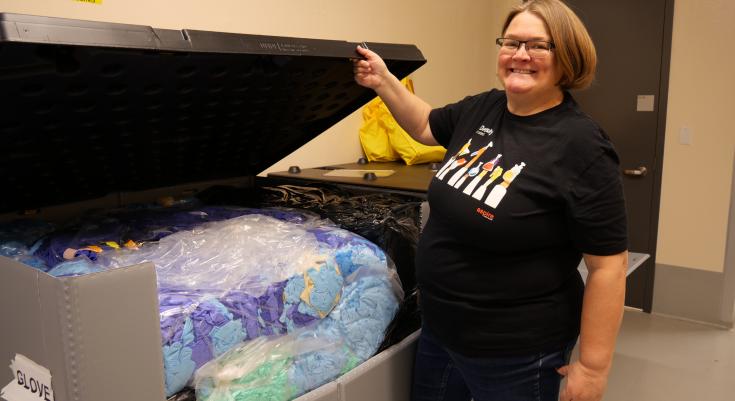
Labs across campus are making moves to be more sustainable by working with the award-winning UBC Green Labs Program to reduce the environmental impact of lab-based activities.
UBC is one of the world’s top research universities and home to over 400 labs that serve as an important resource to encourage and support innovation. Research labs account for approximately 50% of energy use, 25% of water use and generate 95% of hazardous waste on the Vancouver campus.
Through leading, practical strategies developed by UBC’s Green Labs Program, in collaboration with its academic partners, researchers across campus have access to a suite of tools, programs, and resources to reduce the environmental impact of lab-based activities.
Dr. Reinhild Kappelhoff, Lab Manager for the Overall Lab at the Centre for Blood research has been involved with the Green Labs program since its inception in 2008.
“As a lab manager, we have a leadership role and the power to make sustainable decisions about what to buy, from whom to buy, how to deal with waste and recycling and educating colleagues in the lab on how to be more sustainable. Every recycling initiative implemented into the lab will help take climate action against global warming,” said Dr. Kappelhoff.
The Green Labs Program is one of the first of its kind in the world and has over 30 dedicated sustainability lab coordinators across campus that are working to advance sustainability in their departments. Recently, the UBC Green Labs Program received the prestigious Green Lab Program Pioneer Award by the International Institute for Sustainable laboratories.
“Our focus has been to empower researchers to make informed choices and implement strategies for reducing lab-generated waste,” said Kate Andrews, Green Labs Program Lead at Campus and Community Planning. “We do this by offering researchers training, incentives and access to resources to help them make positive changes in their labs. This includes providing guidance on smart purchasing through the Green Purchasing Guide.”
Please visit the Campus + Community Planning website to read the full story.
Through Strategy 3: Thriving Communities, UBC is committed to supporting the ongoing development of sustainable, healthy and connected campuses and communities.